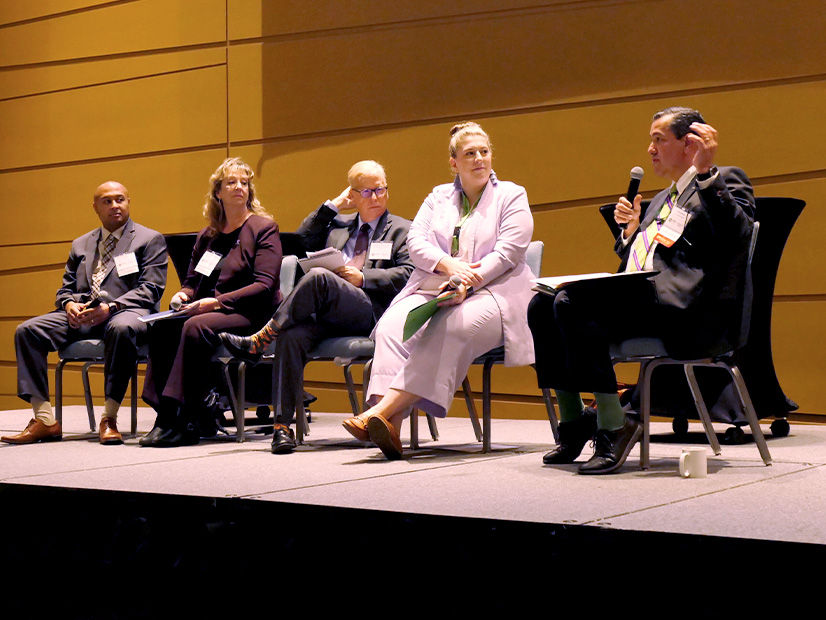
A Connecticut official said she hopes potential offshore wind developers will take a lower profit to help the industry off the ground.
HARTFORD, Conn. — Hartford Mayor Luke Bronin opened Connecticut Power and Energy Society’s “Future of Energy” conference with a call to speed up the pace of the energy transition, while also praising the state’s accomplishments.
“We’ve got to go so much faster if we’re going to get where we need to go,” Bronin said. “We know how much is at stake.”
Commissioner Katie Dykes of the state’s Department of Energy and Environmental Protection said climate change is stressing the state’s infrastructure, which has endured the effects of flooding from heavy and persistent rains that have bombarded the northeast this year.
Dykes said economywide decarbonization relies on decarbonizing the electric sector — which will in turn relies on the successful deployment of offshore wind — while also keeping electric rates as affordable as possible.
“There is a ceiling on what ratepayers can afford when it comes to offshore wind at this moment,” Dykes said.
For developers preparing bids for the state’s upcoming offshore wind procurement, “it’s important to keep price in mind,” Dykes said, expressing her hope some developers may be willing to take a lower profit margin to help the industry off the ground.
She expressed her hope that coordinated procurements between Connecticut, Rhode Island and Massachusetts, along with indexing provisions in the contracts to account for inflation, will help overcome the industry’s recent struggles. (See Mass., RI, Conn. Sign Coordination Agreement for OSW Procurement.) In early October, Avangrid reached an agreement to back out of its contract with two Connecticut utilities for the 804-MW Park City Wind project, calling it “unfinanceable.” (See Park City Wind to Cancel PPAs, Exit OSW Pipeline.)
Dykes added that the state will continue to think creatively about improving the procurement process, and is considering holding regular, annual solicitations and dividing wind and related transmission procurements into “separate but synchronized” processes.
Paul Lavoie, Connecticut’s chief manufacturing officer, said offshore wind presents “a once-in-a-generation opportunity for us to stand up a new industry,” and that the state needs to increase its workforce development to prepare for the opportunity.
“The number one problem in Connecticut is the lack of a skilled and available workforce,” Lavoie said, adding this likely will remain the top issue for industry and manufacturing for the next 20 years.
He added that collaborating with neighboring states will allow each state to play to its strengths and minimize workforce shortages in any given state, citing coordinated procurements as an example.
“When it comes to the offshore wind industry, we can no longer be competitive — we have to be collaborative,” Lavoie said. “If Massachusetts has a strength, let Massachusetts have that work. If Connecticut has a strength, let Connecticut have that work.”
Lavoie also connected workforce shortages with the shortage of affordable housing in the state. “We don’t have enough places for people to live,” he said.
A local supply chain also could help insulate against future inflation increases, said Per Onnerud of Cadenza Innovation, a company that develops lithium-ion battery storage.
“Unfortunately, our supply chain right now is in China, for the lithium industry,” Onnerud said. “We need to lessen our relationship with China. We need to decouple, but we also cannot completely go cold turkey … It’s about striking a balance.”
Deputy Commissioner Robert Hotaling of the Connecticut Department of Economic and Community Development added that the state must focus on bringing education and employment opportunities to diverse and underserved communities.
“Diverse workforces drive innovation,” Hotaling said. “People from different backgrounds have different ideas, which lead to diverse solutions.”



